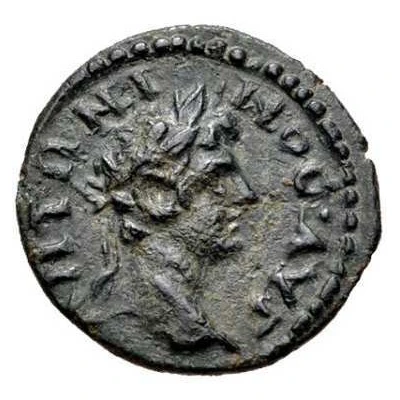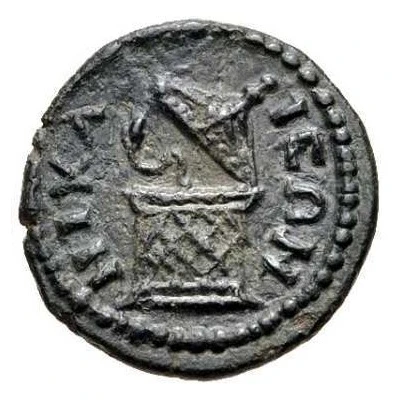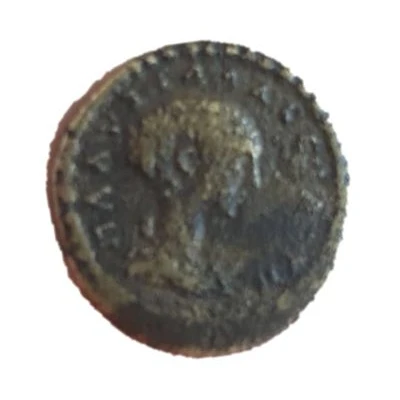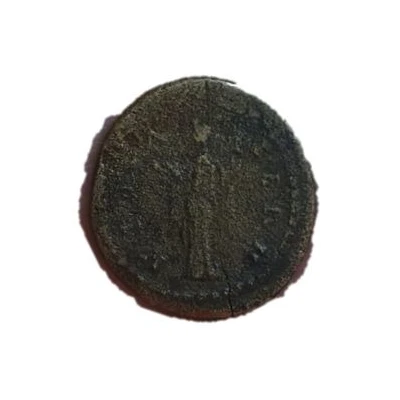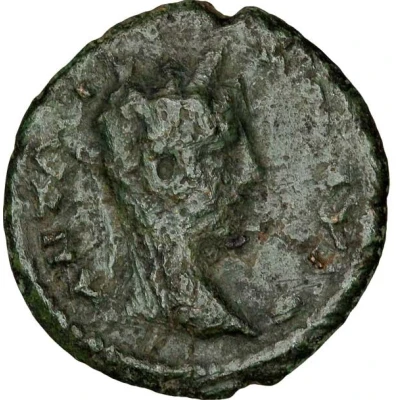
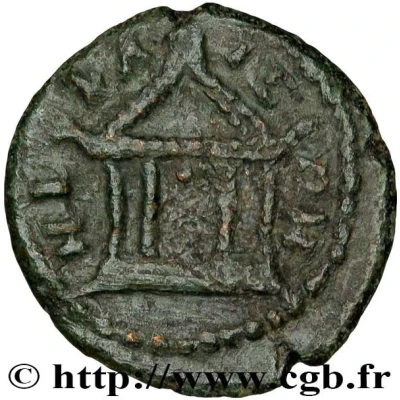

© CGB
Hemissarion - Caracalla Nicaea
| Copper | 1.98 g | 16 mm |
| Issuer | Nicaea (Bithynia and Pontus) |
|---|---|
| Emperor | Caracalla (Marcus Aurelius Antoninus Caracalla) (198-217) |
| Type | Standard circulation coin |
| Years | 201-203 |
| Value | Hemissarion |
| Composition | Copper |
| Weight | 1.98 g |
| Diameter | 16 mm |
| Shape | Round (irregular) |
| Technique | Hammered |
| Demonetized | Yes |
| Updated | 2024-10-10 |
| Numista | N#65528 |
|---|---|
| Rarity index | 97% |
Reverse
Tetrastyle temple with three steps and peaked roof, globules within.
Script: Greek
Lettering: NIKAIEΩN
Interesting fact
The Hemissarion - Caracalla (Nicaea) coin was minted during the reign of Emperor Caracalla, who ruled the Roman Empire from 211 to 217 AD. The coin's design features the image of Caracalla on one side and the goddess Roma on the other. The coin was used as a means of payment and circulated widely throughout the empire. It's worth noting that the coin's weight of 1.98g is relatively light compared to other coins of the time, which were often made of heavier metals like gold or silver. This suggests that the coin was intended for everyday transactions and was not meant to be a high-value coin. Overall, the Hemissarion - Caracalla (Nicaea) coin is an interesting piece of history that provides insight into the economic and political systems of the Roman Empire during the 3rd century AD.
